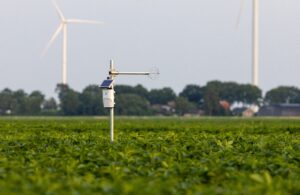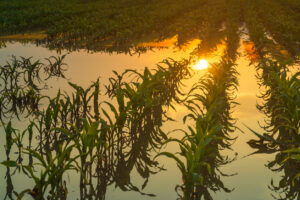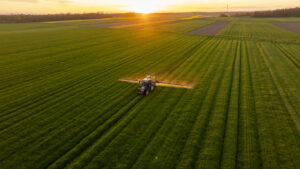by Bridgit Hawkins, CropX Chief Sustainability Officer
Sustainability has been a “buzz” word for over a decade, and now it is joined by regenerative, biodiversity, carbon zero, nature positive – the list goes on. The thing is – these are not “buzz” words, but ways of operating that are essential considerations so food production systems can adapt to thrive in the face of climate change. Some of the largest food companies, such as PepisCo, Nestlé, and others, have declared that reducing carbon in their supply chains must stem from tangible reductions rather than mere offsetting. This is a very clear signal these are not buzz words, but essential requirements. Growers must embrace practice changes, adopt new products, and leverage efficiencies to meet evolving sustainability standards. The most successful transitions will be the ones that support thriving farms while improving sustainability impacts.
Technology Solutions Can Enable Emissions Reductions
To embed sustainability more deeply into the food system will require more technology solutions than are available for farmers today. Luckily, options are rapidly multiplying. Precision agriculture, the Internet of Things and data analytics have been available for some time and many growers have already integrated these technologies into their operations to save energy, water, chemicals and emissions. Image recognition, machine learning, AI, low-cost point-of-sample diagnostics are all emerging technologies that are expanding growers’ options.
Tech Solutions Must be Coupled With Reporting and Verification
However, the journey toward sustainability entails more than just implementing tech solutions to achieve reductions. It requires robust reporting mechanisms for measuring carbon reductions and verification processes to instil confidence in customers. The need for transparency and accountability right through to the end consumer has never been greater, underscoring the importance of reliable data and credible verification methods.
Toward an Ecosystem Approach
Yet, sustainability goes beyond carbon reduction—it encompasses a holistic understanding of food production as an ecosystem. In more recent stages of the evolution of agriculture, farming has been viewed through a narrow lens, focusing solely on inputs like seeds, fertilizers, and pesticides to maximize yields. However, today’s farmers recognize that a thriving food production system hinges on biodiversity and ecosystem health. Flowers, bees, birds, and soil biology are now acknowledged as integral components of sustainable agriculture.
The need of growers to work with natural ecosystems has led to the emergence of new products, such as biologics, that support biodiversity and soil health. Along with this comes interest in measuring and capturing the value of practices that enhance biodiversity. Technology remains instrumental in these endeavours, offering tools for monitoring biodiversity metrics and quantifying the benefits of conservation practices.
Make Tech That Works For Growers
As the most important agent of change in food production, growers need solutions that reduce workload and costs and increase the overall value of their farm business. It’s crucial to recognize that the adoption of sustainable practices hinges on the alignment with farmers’ needs and priorities, and that they should be engaged as partners. Rather than blaming the agricultural sector for slow adoption of these shiny new tools and solutions, we must acknowledge that the pace of adoption is contingent upon the availability of practical and effective solutions.
For Tech Providers, Streamlining and Simplifying is the Key
For a grower, farming “sustainability” is becoming more complex and nuanced. To meet all the existing and emerging requirements from the end consumer and the global food giants means for the grower the introduction of many and varied new practices and management systems. Technology solutions will be key to this change, but to support grower adoption of the multitude of technologies they will need, the solutions must combine data from many and varied sources and create the complete picture of progress and achievement. Point solutions – technology that just does one thing and is offered only as a stand-alone app – have less value for a grower. Even if it is exceptional at that one thing, it is one of many for the grower to use. Growers do not have the time, money or headspace to work with each technology individually.
The future of technology solutions that support growers embed sustainability into their system will be those that are exactly the adage “the sum is more than the parts”. This is CropX’s journey as it evolves alongside growers globally. Just as growers’ needs are changing, so too is CropX, which offers a nuanced and comprehensive farm management platform for the growers of today, for tomorrow.
About the Author
Bridgit Hawkins, M Ag Sci, developed an automated way for farmers to assess soil conditions to optimise effluent irrigation based on research undertaken by Massey University in New Zealand. In 2010 she founded Regen Ltd to make this technology commercially available to farmers across New Zealand. In 2020 she sold Regen to CropX Technologies, a global digital agronomic solutions developer, in order to expand the reach to farms worldwide and combine the advanced effluent management of Regen with CropX’s comprehensive agronomic farm management platform.




